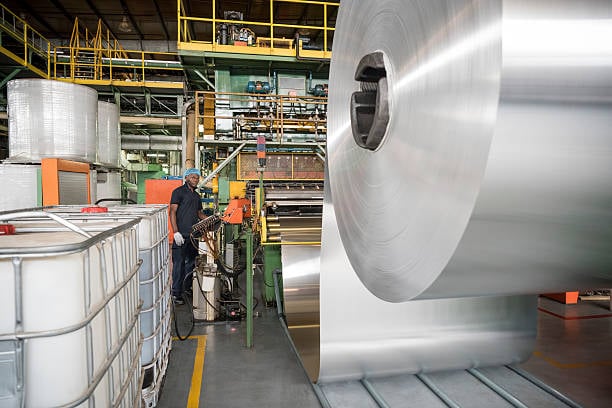The Federal Government is putting the final touches on a new Nigerian Industrial Policy designed to transform the country’s manufacturing landscape and reduce its heavy dependence on imported goods.

Spearheaded by the Ministry of Trade in collaboration with the Manufacturers Association of Nigeria (MAN), the policy aims to significantly raise the manufacturing sector’s contribution to the national GDP, which currently sits below 10%.
Speaking at the 2025 Nigerian Manufacturing & Equipment/Nigerian Raw Materials Expo in Lagos, Minister of State for Industry, John Owan Enoh, reaffirmed the government’s focus on fostering an enabling environment that prioritizes domestic production and discourages the export of raw materials.
“This policy has been in development for years, and we’re now bringing it to life with the help of various stakeholders,” Enoh stated. “It’s not a government-only project — we are working hand in hand with industry players.”
Policy in Line with Tinubu’s Economic Vision
According to the Minister, the upcoming industrial strategy aligns with President Bola Tinubu’s Renewed Hope agenda, which emphasizes diversification across strategic economic sectors.
“This policy speaks directly to the President’s call for economic transformation through sectoral diversification,” Enoh noted. “It will be competitive and in tune with global manufacturing trends.”
The policy is being collaboratively developed with key stakeholders, especially MAN, to ensure it reflects the practical needs of Nigerian industries while embracing global shifts in manufacturing practices.
“We must produce — that is the only way forward,” Enoh emphasized during his speech, highlighting the urgent need to scale up local production.
Focus Areas and Strategic Sectors
The policy is expected to spotlight several high-potential sectors, including textiles, agro-processing, pharmaceuticals, and automotive manufacturing — all seen as critical to job creation, industrial value addition, and export growth.
Enoh, after touring the exhibition, praised the locally developed machines and innovations on display, calling it a powerful showcase of Nigerian enterprise.
“Seeing these made-in-Nigeria machines firsthand was inspiring,” he said. “It reaffirmed the potential we have as a nation to drive our own industrial success.”
Industry Support for the New Direction
Segun Ajayi-Kadir, Director-General of MAN, voiced strong support for the policy, calling it a necessary step toward Nigeria’s long-overdue industrial evolution.
“The Nigerian Industrial Policy is a critical tool that will help reshape our manufacturing future,” he said. “It must include all the necessary frameworks for meaningful industrialization.”
He also stressed the need for regulatory policies that promote ease of doing business and scale, rather than hinder growth.
“Regulations should enable business growth, not stand in the way of it,” Ajayi-Kadir added.
Key Takeaways:
- The upcoming Nigerian Industrial Policy aims to reduce imports and promote local manufacturing.
- It is a joint effort between the government and key industry stakeholders like MAN.
- Strategic focus areas include textiles, agro-processing, automotive, and pharmaceuticals.
- The policy is part of President Tinubu’s broader agenda for economic diversification.
